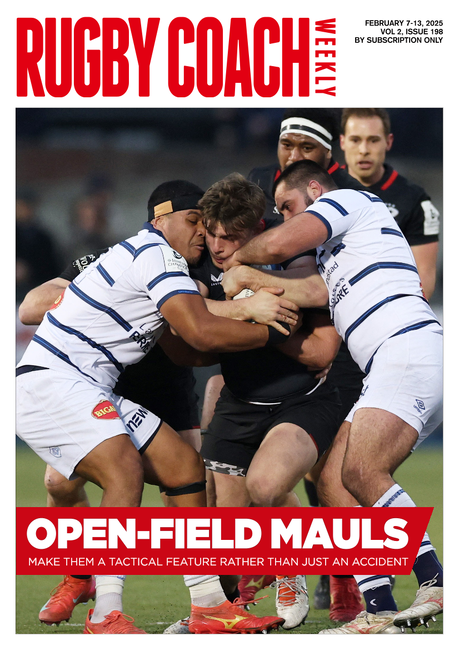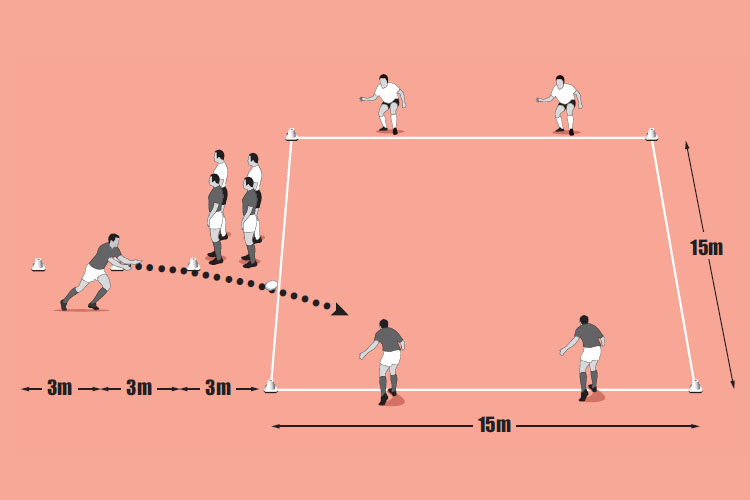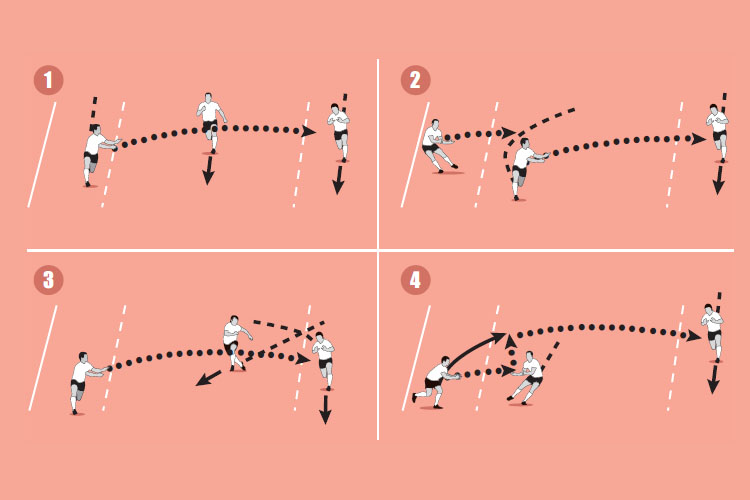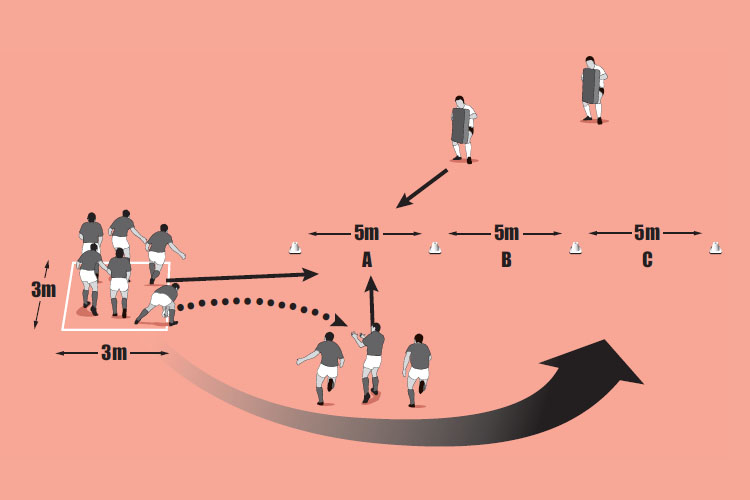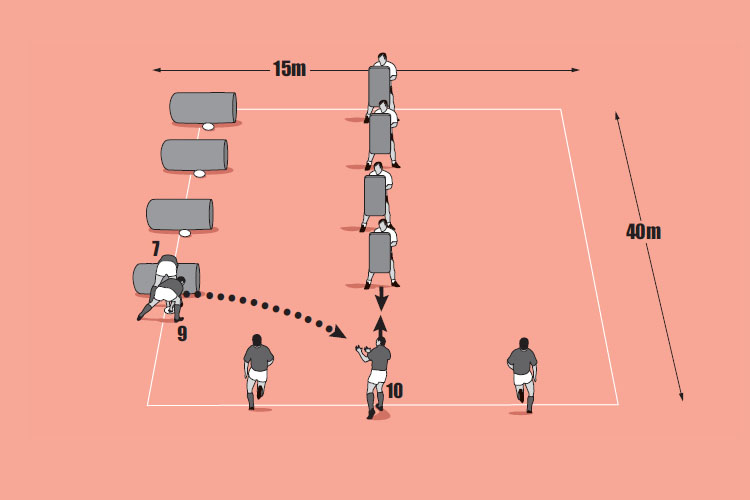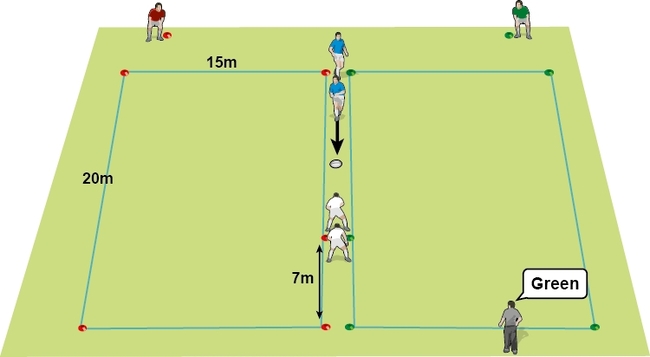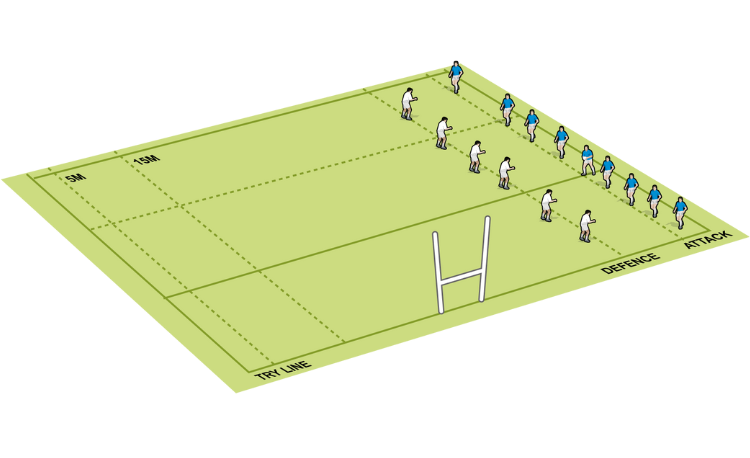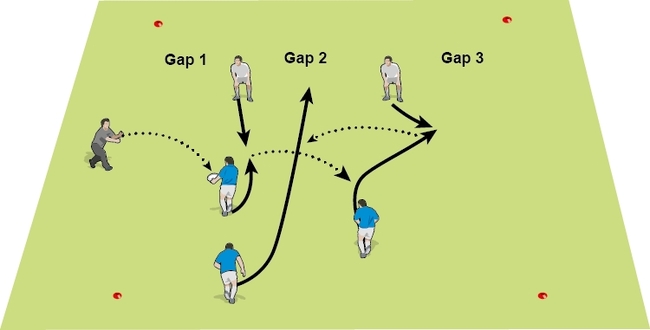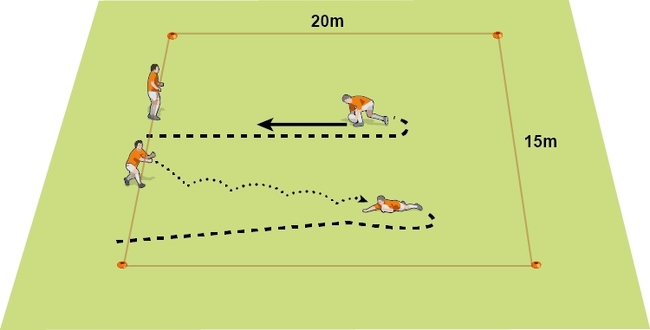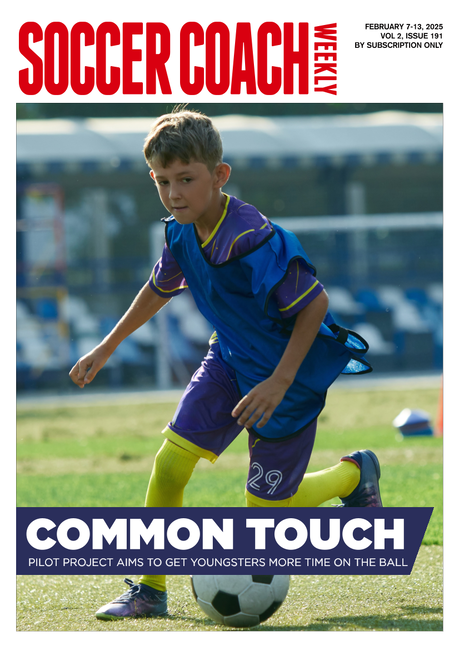Mismatch offload
Mismatch offload brings together many of the basic skills a player needs in close contact. Scanning to see mismatches, communication to alert team mates, passing to get the ball there, and footwork and power to get beyond the defender. After that there’s the soft pop pass to the support player arriving from depth at pace.
Warm up time: 5-7
Session time: 10-15
Development time: 10-15
Game time: 15-20
Warm down time: 7-10
What to think about
There are different types of mismatch that can be exploited to the attacking team’s advantage. Big against small A small defender will almost always have to tackle low to stop a big runner. This naturally creates an opportunity for an offload out of the tackle, as the ball carrier can easily get his hands free. Jinky against static Big defenders are often fairly static and tend to find it hard to move laterally to tackle. If you can attack them with your elusive runners you can force them into having to make low side-on tackles, allowing the chance to offload the ball. Ensure your players understand the types of mismatches they are trying to create and exploit, and give them lots of opportunity to practise in live situations.set-up
- Scan the defence to find the mismatches.
- Communicate where they are and get the ball there.
- Attack the edges of defenders and create offload opportunities.
- Support from behind the ball carrier.
What you get your players to do
Put a ball carrier about 2m away from a defender, with a supporter 5m behind the ball carrier. Get the ball carrier to use footwork skills to move the defender and attack the space beside him. As he is tackled he drives his legs and pushes his arms through to give a pop pass to the supporter. The supporter reacts to the situation to decide which side to run. Generally, if the ball carrier has gone left the support player goes right.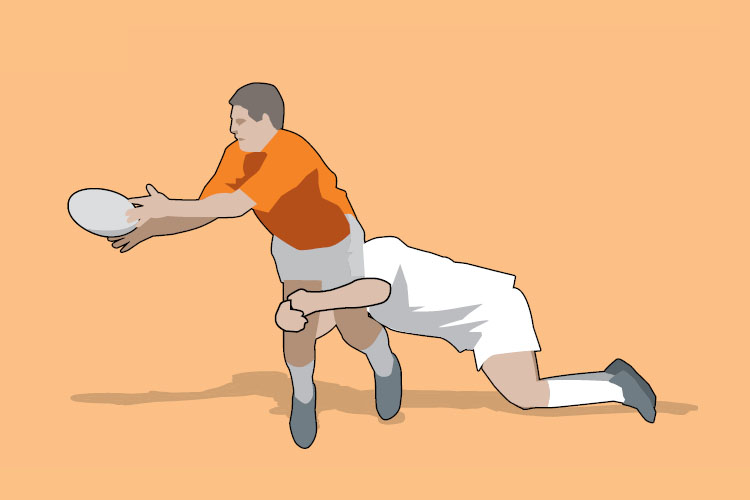
Development
- Add a second defender behind the first and another support player. The receiver then repeats the exercise with the second defender.
- Put two defenders side-by-side, about 3m apart. The ball carrier has to burst through the middle of them and offload round the back to the support runner.
Related Files
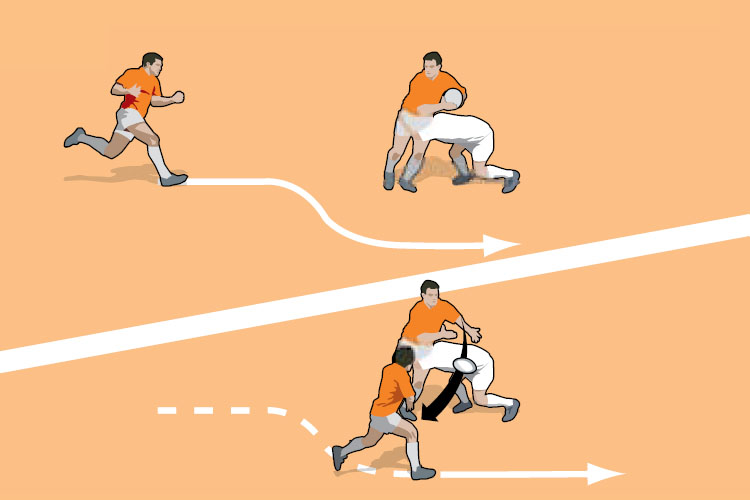
Game situation
Split into two teams of 7 and select 3 or 4 of the defending team to be tacklers. Put the tacklers in bibs so they can be easily identified. Only the tacklers can tackle and tackles must be waist height or below. The other defenders use a twohanded touch tackle. If touched, the attackers go to ground and place the ball back. If they are tackled by one of the tacklers, they can offload to a support player. After 5 attacks swap the teams over.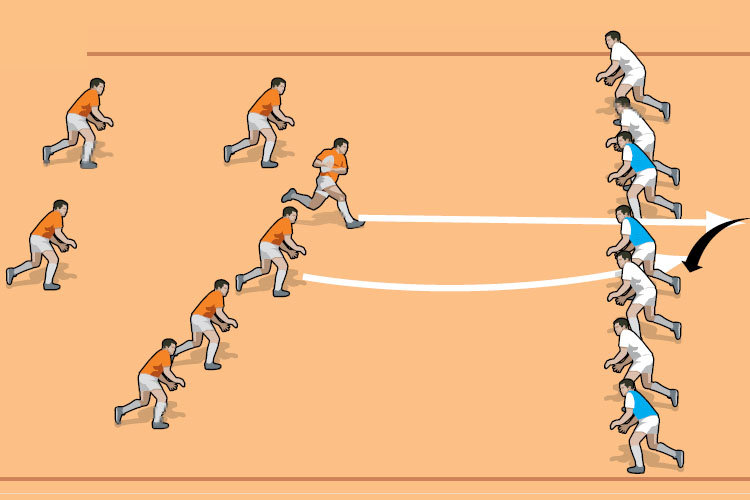
What to call out
- “Get on the ball carrier’s shoulder”
- “Tell the ball carrier exactly where you are and when you want the ball”
- “Move the defender and drive through the tackle”
Newsletter Sign Up
Coaches Testimonials

Gerald Kearney, Downtown Las Vegas Soccer Club

Paul Butler, Florida, USA

Rick Shields, Springboro, USA

Tony Green, Pierrefonds Titans, Quebec, Canada
Subscribe Today
Be a more effective, more successful rugby coach
In a recent survey 89% of subscribers said Rugby Coach Weekly makes them more confident, 91% said Rugby Coach Weekly makes them a more effective coach and 93% said Rugby Coach Weekly makes them more inspired.
Get Weekly Inspiration
All the latest techniques and approaches
Rugby Coach Weekly offers proven and easy to use rugby drills, coaching sessions, practice plans, small-sided games, warm-ups, training tips and advice.
We've been at the cutting edge of rugby coaching since we launched in 2005, creating resources for the grassroots youth coach, following best practice from around the world and insights from the professional game.


